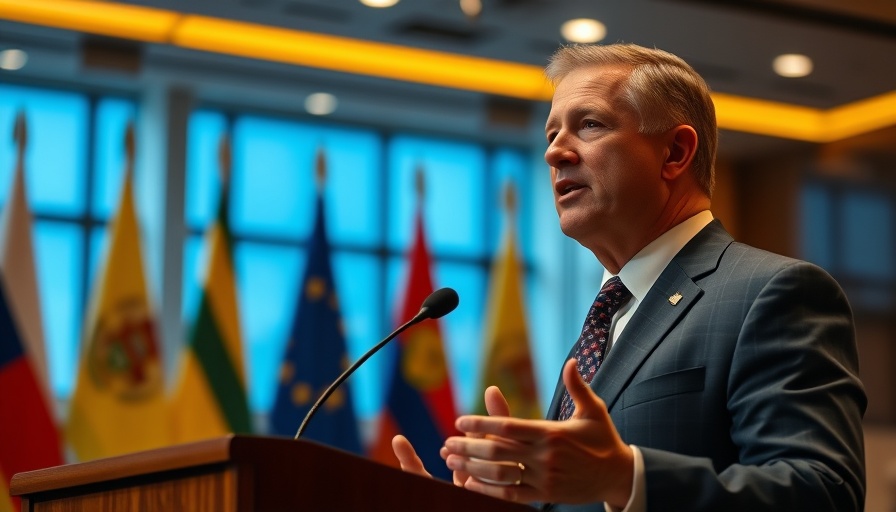
Brazil and South Africa: A Coalition for Justice
In a significant move that could reshape international legal frameworks, Brazil is gearing up to ally with South Africa in a high-profile genocide case aimed at Israel's military actions in Gaza. This collaboration comes as South Africa formally initiated proceedings at the International Court of Justice (ICJ), arguing that Israel’s military operations extend beyond permissible self-defense and constitute violations of the 1948 Genocide Convention.
In 'Brazil will team up with South Africa for Gaza case at International Court of Justice', the discussion dives into international accountability, exploring key insights that sparked deeper analysis on our end.
A Focus on Civilian Impact
The South African government asserts that Israel's military activities have not only targeted Hamas but have also resulted in extensive civilian casualties, impacting schools, hospitals, and shelters. This focus on collateral damage exacerbates an already tense humanitarian crisis and raises pertinent questions on the legality of military tactics employed by Israel amidst its ongoing conflict.
International Support and Broader Implications
Several nations, including Spain, Turkey, and Colombia, have signaled their interest in supporting the ICJ case. This wave of international solidarity signifies a broader discontent with current geopolitical frameworks and raises concerns regarding Israel's accountability in the international arena. Observers note that the move could inspire further global scrutiny of humanitarian violations and elevate the discussion on international law enforcement.
Brazil's Commitment to International Law
The Brazilian government has expressed deep indignation over the violence inflicted upon civilians in Gaza, emphasizing its commitment to upholding international legal standards. By joining this case, Brazil not only solidifies its position on the side of justice but also sets a precedent for other nations on how to respond to perceived atrocities, especially within the context of international human rights.
In the face of escalating violence in global hotspots, the joint effort by Brazil and South Africa stands as a beacon of hope for advocates of humanitarian law. As the world watches, it remains imperative for nations to advocate for transparency and accountability in war crimes, rethinking how legal recourse can be effectively implemented on an international scale. Could this case at the ICJ potentially alter the course of justice on a global scale?
 Add Row
Add Row  Add
Add 




Write A Comment